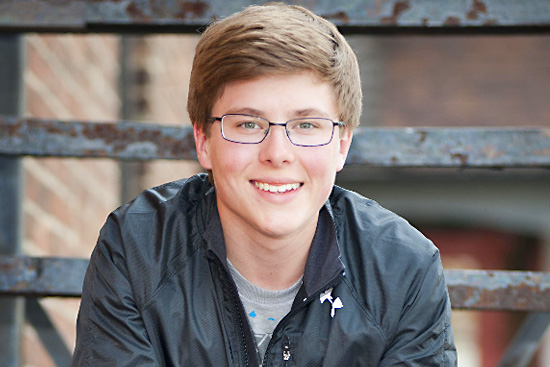On an icy night in November 2014, Chandler Swink was found unconscious in the parking lot of a Pontiac, Michigan, hospital, and he never regained consciousness. He died a week later from the effects of the allergy attack: anaphylactic shock, asthma attack and cardiac arrest.
His mother, Nancy, learned later that 19-year-old Chandler — diagnosed with a level six (the most severe) peanut allergy — came into contact with some kind of peanut, peanut product, or cross-contamination at his friend’s house, used his EpiPen, and drove himself to a nearby hospital.
“I’m sure he didn’t tell me because he didn’t want to worry me,” she recalls.
Now, three years after Chandler’s death, a series of fortuitous meetings has led to the creation of a professorship at Michigan Medicine in his name. Mary H. Weiser had met Nancy Swink at an annual food allergy event and learned about Chandler.
Meanwhile, a generous anonymous donor whose family is affected by food allergy was in the process of giving $1.25 million to the Mary H. Weiser Food Allergy Center. The gift was at the named-professorship level — but, of course, an anonymous donor would not want his or her name on the professorship.
So Mary Weiser connected the dots, leading to the creation of the William Chandler Swink Research Professorship.
“It just seemed like divine intervention,” Mary says of the donor and the Swink family being brought together. “It also shows just what a broad tent we have at the Food Allergy Center. Chandler wasn’t a student from the University of Michigan, the donor wasn’t from Michigan — but because we have this great center, we are able to bring people together from around the country to try to develop new cures for food allergies.”
For most of his life, Chandler and his family navigated a world that was not friendly or particularly accommodating to a child with a severe food allergy, facing everything from ambivalence to hostility.

